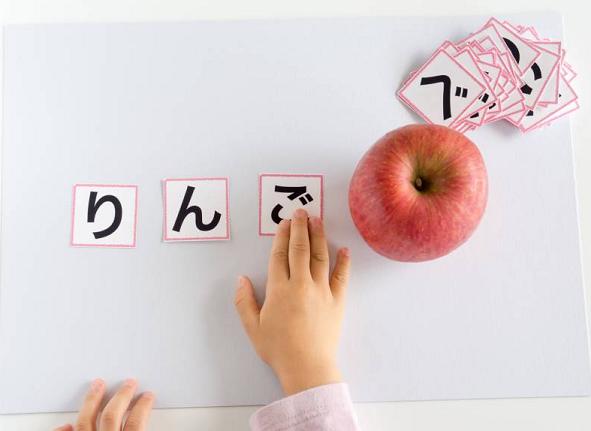Shiritori: a simple game thats great for practicing your Japanese vocab

It’s a game everyone in Japan knows. It requires no equipment and can be played anytime, anywhere. All you need is a minimum of two players (at least one of whom will typically be below the age of 10), some rudimentary kana knowledge, and a lot of words. しりとり (shiritori) is the name of the game, derived from the phrase 尻を取る (shiri o toru). It literally means “take the rear” — and that is basically what you do.
Here is how it works: One player says a word, the “rear part” of which is then recycled by the next player for the beginning of a new word. The rear part of the new word will be used by the next player to begin another word with, and so forth.
A game will normally start with the word “shiritori” itself, which means that the next item will have to begin with り (ri). The default choice here is りんご (ringo, apple), in which case the following word is required to begin with ご (go). This can continue on forever, or until someone — by accident or on purpose — proffers an item that ends in ん, the singular “n” sound. Some common candidates here are キリン (kirin, giraffe), だいこん (daikon, radish), and みかん (mikan, tangerine). Since there is no Japanese word that starts with ん, you have reached a dead end. Needless to say, the person who came up with the ん-word loses.
The rules are a bit fuzzy with respect to what exactly the rear part of a word is. Most people seem to take it to be the final kana or kana combination of an item. That means that in the case of a long vowel indicated by a 伸ばし棒 (nobashibō, lengthening dash), they would go with the last kana before the dash. Accordingly, the word following on ストロー (sutorō, straw) would start with “ro” rather than “ō.”
Another tricky case is when a word ends in a small kana, such as with じてんしゃ (jitensha, bicycle). While you could just change little ゃ into a full-fledged upper-case や and use this one for your next word, players are more prone to keeping the しゃ combination, and will continue on with a word such as しゃっくり (shakkuri, hiccup) or しゃこ (shako, garage) instead.
more...
http://www.japantimes.co.jp/life/2017/01/16/language/shiritori-simple-game-thats-great-practicing-japanese-vocab/
